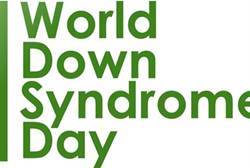
As Efrat Dotan, a 29-year-old young woman with Down syndrome, opened the proceedings, the 2013 World Down Syndrome Day conference was launched at the Hadassah Medical Center, with over 400 people in attendance.
Typically, this conference is held on March 21st, in recognition of “Trisomy 21,” the other name for Down syndrome, indicating that those with the syndrome have three, rather than the usual pair, of #21 chromosomes. This year, however, the conference was delayed in Israel because of the Passover holiday and the visit to Jerusalem of United States President Barack Obama. The concept for an annual conference about Down syndrome was initiated in 2006 by Balbir Singh of the Singapore Down Syndrome Association and Joav Merrick of the National Institute of Child Health and Human Development (NICHD) in Israel. Today, the conference in Israel is hosted with the broad collaboration of Hadassah’s National Center for Down Syndrome under the direction of Center Director Dr. Ariel Tenenbaum, along with the NICHD, the Ministry of Social Affairs, the Municipality of Jerusalem, the Jerusalem Down Syndrome Association (Yated), Keren Shalem, and the SHALVA Center in Jerusalem.

Hadassah’s National Center for
Down Syndrome
This year’s Conference sessions featured medical advances and new technology in Down syndrome treatment. Dr. Tenenbaum presented new research from Israel and abroad, highlighting a Hadassah study which revealed that individuals with Down syndrome are hospitalized more often and for longer periods of time than those in the general population. In addition, he noted that many more needed to be hooked up to oxygen and a great number needed intensive care. “They have to be watched carefully,” he said. “And they all must get vaccinated against the flu.”
Yidida Levin-Stranberg from Ariel University and Rina Cohen from the Ministry of Education explained how iPad technology has opened a whole new world for children and youth with special needs, enabling them to communicate and socialize more effectively. Inclusion of those with special needs was the focus of another session, where Danny Katz, Division for Intellectual and Developmental Disabilities, Ministry of Social Affairs and Social Services, reported on the joint project of the Ministry, AKIM, and the Israel Defense Forces aimed at integrated people with special needs into the army. Since the project began in 2008, 31 special needs soldiers have been enlisted, with much success.
Participants also learned that, in the spirit of inclusion, Israel’s basketball team, Hapoel Jerusalem, has adopted the children of SHALVA, Israel’s association for physically and mentally challenged children, and is training them for matches.
